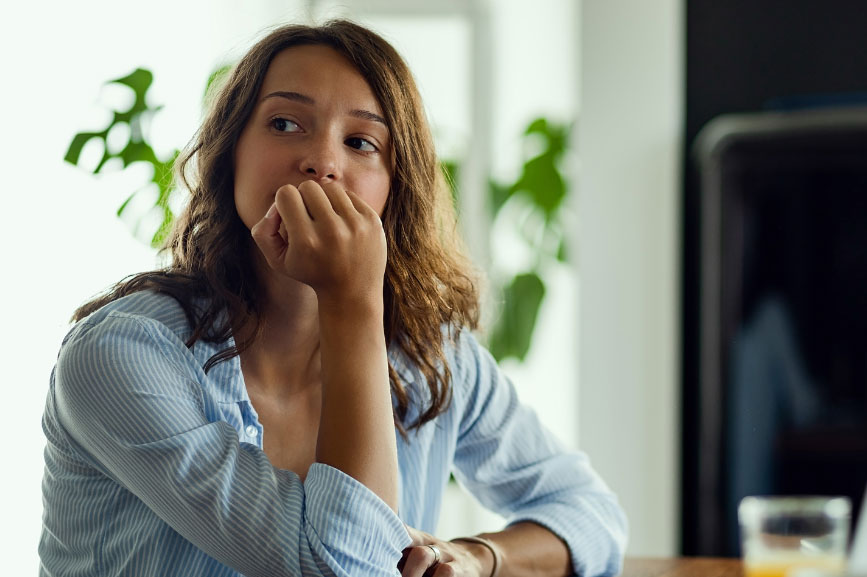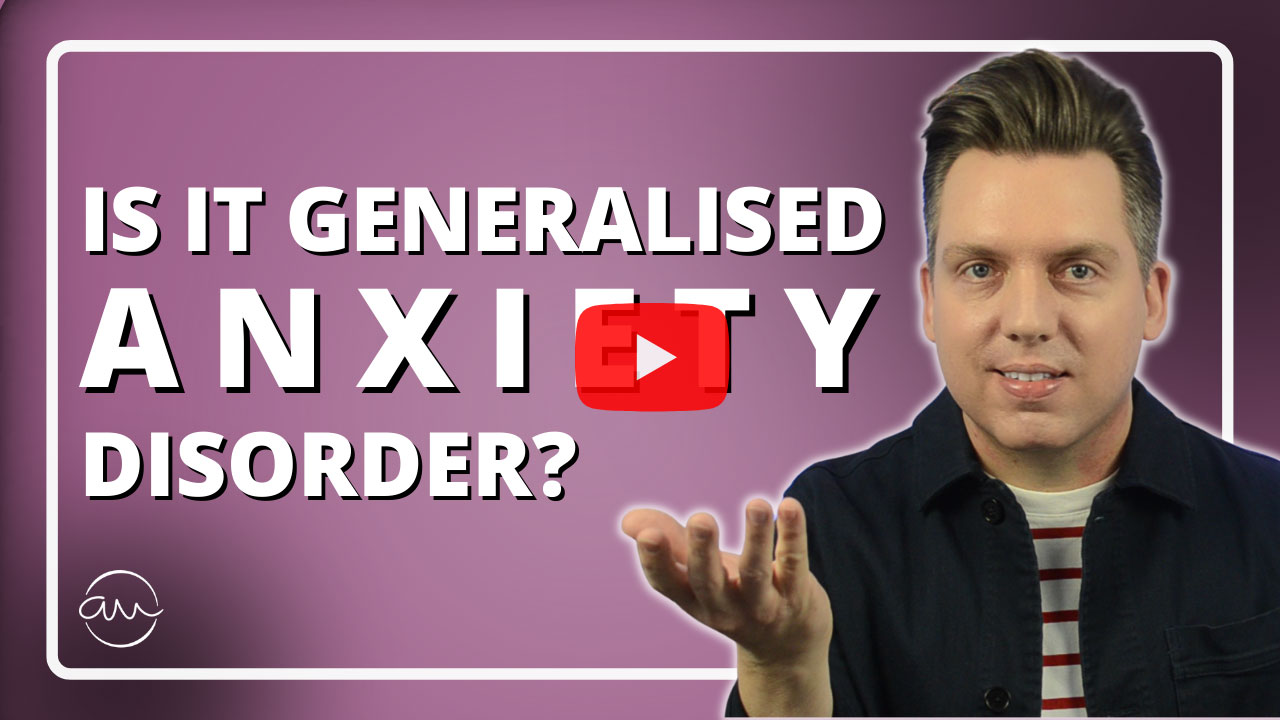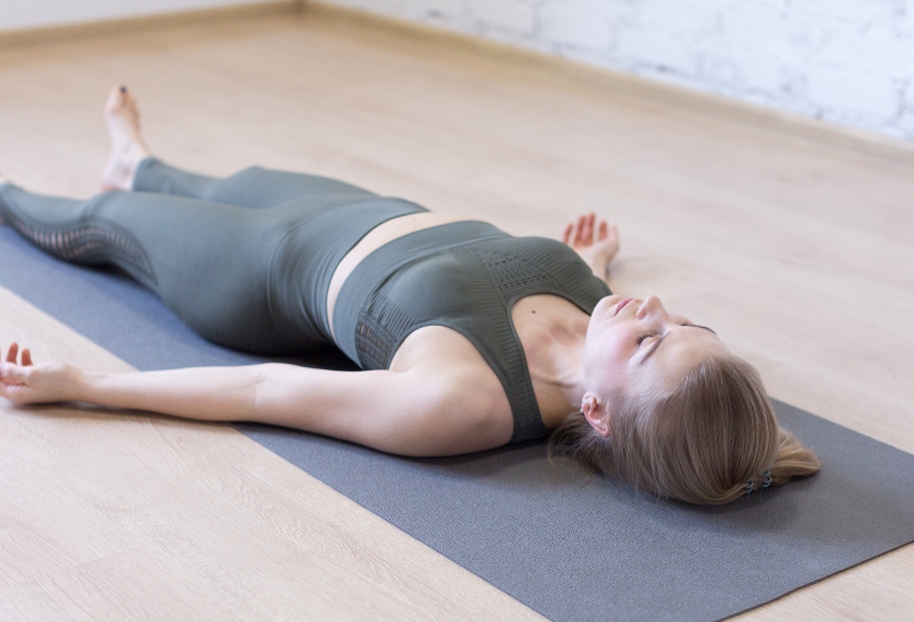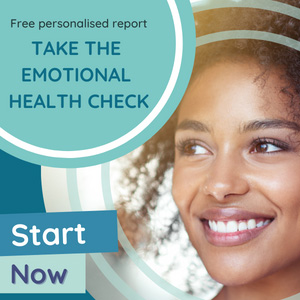Everybody gets worried or anxious from time to time, but what if those feelings don’t go away or they’re triggered for no certain reason? It can leave you feeling worried and anxious a lot of the time and sometimes you’re not even sure why. So it’s important to understand the signs and symptoms, because change is possible. In this article, we’ll explore the signs and symptoms and explain what you can do to reduce anxiety and get the real you back again.
What is Generalised Anxiety Disorder (GAD)?
Generalised Anxiety Disorder (GAD) is a mental health condition characterised by persistent and excessive worry that interferes with daily life. Diagnosis of GAD is usually given when your anxiety and worry focuses on two or more stressful life circumstances such as finances, relationships, health or your performance at work for the majority of days during a six month period. It can be difficult to recognise GAD as it manifests in different ways, however, understanding the symptoms of this disorder is key to managing it effectively.
Watch this video to learn more about Generalised Anxiety Disorder (GAD) and how to deal with it effectively
If you're looking to learn more about Generalised Anxiety Disorder (GAD) and how to overcome it, please watch this helpful video now.
How do I know if I have Generalised Anxiety Disorder?
Generalised Anxiety Disorder (GAD) is a condition characterised by persistent and excessive worry which can interfere with daily activities. It can be difficult to recognise GAD as it manifests in many different ways. The key symptom of GAD is persistent and intrusive worrying which can last for long periods of time and be difficult to control.
What Does Generalised Anxiety Disorder Feel Like?
The most common symptoms of GAD include:
- Excessive worry about a number of situations or activities in your life
- Worrying almost every day about how you will cope with events for example; job responsibilities, health and welfare of family members of yourself or financial issues
- Difficulty controlling your worries and overthinking
- Feeling restless and on edge
- Low energy levels and fatigue
- Lack of focus and concentration
- Irritability and frustration
- Muscle tension and headaches
- Difficulty in falling or staying asleep
- Finding it difficult to cope with work, household chores and social situations
There are certain factors that may contribute to its development such as genetics, environment, trauma or stressful events. However, a common trigger for GAD is stress, especially when stresses and pressure in life are continuous, increase or happen to us. For example, it could be triggered by work pressures, bereavement, divorce, illness or the loss of job.
How to Recognise Generalised Anxiety (GAD) Symptoms in Yourself or Others:
If you think that you may have GAD, it is important to seek help from a doctor or mental health professional as soon as possible. If you know someone who might be suffering from GAD, look for signs of excessive and intrusive worrying, difficulty concentrating, restlessness and physical symptoms such as muscle tension or fatigue. If you are worried about someone, it is important to talk to them and let them know that they can get help.
Overall, Generalised Anxiety Disorder (GAD) is a condition that can be difficult to recognise and manage but with the right support, you can learn how to identify symptoms and successfully manage your anxiety levels. It is important to seek help from your doctor or mental health professional as soon as possible if you think you may have GAD, and remember to take steps to reduce stress levels in order to improve mental wellbeing. With the right support, change is possible.
What Strategies Can I Use to Reduce Stress and Anxiety?
Thank fully there are some fantastic therapies and programs that can help you recover plus a number of self-care activities that you can start doing right now to calm down anxiety.
Since stress and anxiety are closely linked, reducing stress levels can have a really positive impact. As you might expect, making time for exercising, getting enough sleep, and eating a healthy, balanced diet all help as well as doing things you enjoy, as well as dong things that bring you some joy and laughter.
One of the foundations of recovery and calming anxiety down is to relax. And I mean really relax. Not just watching TV. Learning to relax your body and mind. It helps calm your nervous system down. So, things like progressive muscle relaxation, breathing exercises, meditation, a bath with candles and soft music, yoga, self-hypnosis. Practice these things regularly and build a healthy habit of taking care of yourself will calm your mind and body down, helping to relieve generalised anxiety so you feel better.
How Can I Find a Therapist Who Specialises in Treating Generalised Anxiety Disorder?
In my online hypnotherapy practice, I specialise in helping clients around the world using Solution Focused Hypnotherapy. It combines talking therapy with elements of CBT with hypnosis. This therapeutic approach means clients receive a combination of all the best approaches to reduce anxiety, regain control, and learn lasting strategies for change consciously and subconsciously.
Book your FREE inital chat with Andrew to discuss Treating Generalised Anxiety Disorder
How does Solution Focused Hypnotherapy Work for GAD?
Solution Focused Hypnotherapy techniques, focuses on the present and future, helping you develop techniques to cope better and move forward, rather than spending a long time analysing the past. Hypnotherapy works by helping you focus on positive solutions and potential outcomes, rather than dwelling on the negative aspects anxiety creates. We also explore what’s happening in the brain, giving you insight into your emotions and experiences, providing you with practical tools and strategies for using your brain in a more helpful way to manage and reduce anxiety.
Learn more about how Solution Focused Hypnotherapy works for GAD
What Happens During Hypnosis for Anxiety?
Hypnosis is a guided process, you’ll be asked to imagine certain things, as you relax into a state of focused attention. The process usually begins with progressive muscle relaxation helping you to relax you mind and body. Once you are fully relaxed you remain fully in control, but you mind is more open to the positive suggestions being made which can help you condition your thinking and thought patterns that may be contributing to their anxiety. The best results are achieved from a number of weekly sessions to create the desired changes as you continue to reduce stress and anxiety and focus on your solutions for change. Overall Solution focused hypnotherapy is a positive and relaxing process which can be a very helpful way to recover from Generalised Anxiety Disorder so you can begin to enjoy life again.
If you’d like some support for Generalised Anxiety, start by getting in touch to book your initial session so that we can explore your situation and tailor a hypnotherapy program to support your positive changes.








